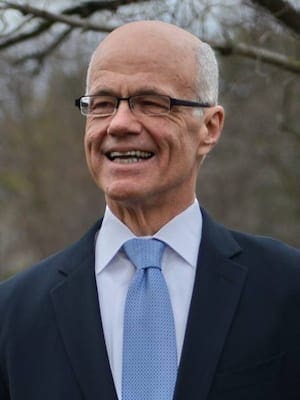We all know the overworked cliché that defines insanity as “doing the same thing over and over again and expecting different results.”
As worn and familiar as it is, we keep proving its essential wisdom.
It happens in the groups of which we’re a part. With urgency and optimism, for example, we have a visioning and dreaming process for our company or organization. Not long after the off-site is over, the consultant has turned in her report, and the board has given its enthusiastic thumbs-up, the “Empire Strikes Back.”
The dream of change gets buried, along with the glossy strategic plan, under stacks and stacks of memos about “business as usual,” mountains of emails and endless meetings perfectly designed to make us feel like we’re doing something when, in fact, we’re meeting to avoid doing the things which most need doing.
It happens in our personal lives, too. Just think about the New Year’s resolutions many of us made about nine months ago: Lose weight. Get in better shape. Get out of debt. Manage time more effectively.
For some of us, though, the diet folded by the time of the Super Bowl party. By February, we were sleeping past the time we meant to go to the gym. The credit card screamed to be used for a spring break trip. We decided that the new time-management system was too complicated to actually use.
A few years ago, in Fast Company, Alan Deutschman wrote about “change or die” choices: “What if you were given that choice? For real. What if it weren’t rhetoric that confuses corporate performance with life or death, but actual life or death? Yours.”
He continued, “What if a doctor said you had to make tough changes in the way you think and act – or your time would end soon? Could you change? Here are the scientifically studied odds: nine to one. That’s nine to one against you.”
Deutschman reviewed research by Edward Miller of Johns Hopkins University Medical School, research that showed that about 600,000 people have heart bypass surgery each year in the U.S., and about 1.3 million people have angioplasties.
Roughly half of the bypass grafts clog up in a few years and the angioplasties in a few months.
Miller said that the best way to decrease the number of failures and of repeat surgery is simple lifestyle change, but he notes how rare such change is.
“If you look at people after coronary-artery bypass grafting two years later, 90 percent of them have not changed their lifestyle, and that’s been studied over and over and over again,” he explained. “And so we’re missing some link in there. Even though they know they have a very bad disease, and they know they should change their lifestyle, for whatever reason, they can’t.”
If the threat of death doesn’t motivate most of us to change, what will?
It’s an urgent question, because “not changing” is a root of our restlessness and lack of peace. Our resistance to change actually hurts us more than the pain of change.
Susan Scott, author of “Fierce Conversations,” said, “Burnout happens, not because we are trying to solve problems, but because we are trying to solve the same problems over and over.”
A resource that can help us is the ancient but ever-new practice of repentance.
To repent has two shades of meaning. On the one hand, it means, “To change your mind” and, on the other, “to change your direction.”
Turn around and head toward wholeness – toward our fondest hopes, deepest dreams and honest-to-God selves.
To repent is also to change our minds. The basic shift of thinking we need is in how we think about God.
Jesus shows us that God has love and mercy for us and offers us free grace and glad welcome. God is for us, not against us – with us, not distant from us.
We don’t claim the gift of repentance – we don’t make important changes – so that God will love us.
Instead, because God already loves us, that transforming and healing love empowers us to make the changes we have yearned to make.
One of the early church’s Desert Fathers, Abba Poemen, said, “The nature of water is soft, and the nature of stone is hard; but if a bottle is hung above a stone letting water drip down, it wears away the stone. It is like that with the word of God; it is soft and our heart is hard, but if we hear the word of God often, it will break open our hearts.”
As we listen to and trust the word of God’s great and gracious love for us, life-enhancing change becomes possible.
 Guy Sayles is a consultant with the Center for Healthy Churches, an assistant professor of religion at Mars Hill University, an adjunct professor at Gardner-Webb Divinity School and a board member of the Baptist Center for Ethics. A version of this article first appeared on his website, From the Intersection, and is used with permission.
Guy Sayles is a consultant with the Center for Healthy Churches, an assistant professor of religion at Mars Hill University, an adjunct professor at Gardner-Webb Divinity School and a board member of the Baptist Center for Ethics. A version of this article first appeared on his website, From the Intersection, and is used with permission.

